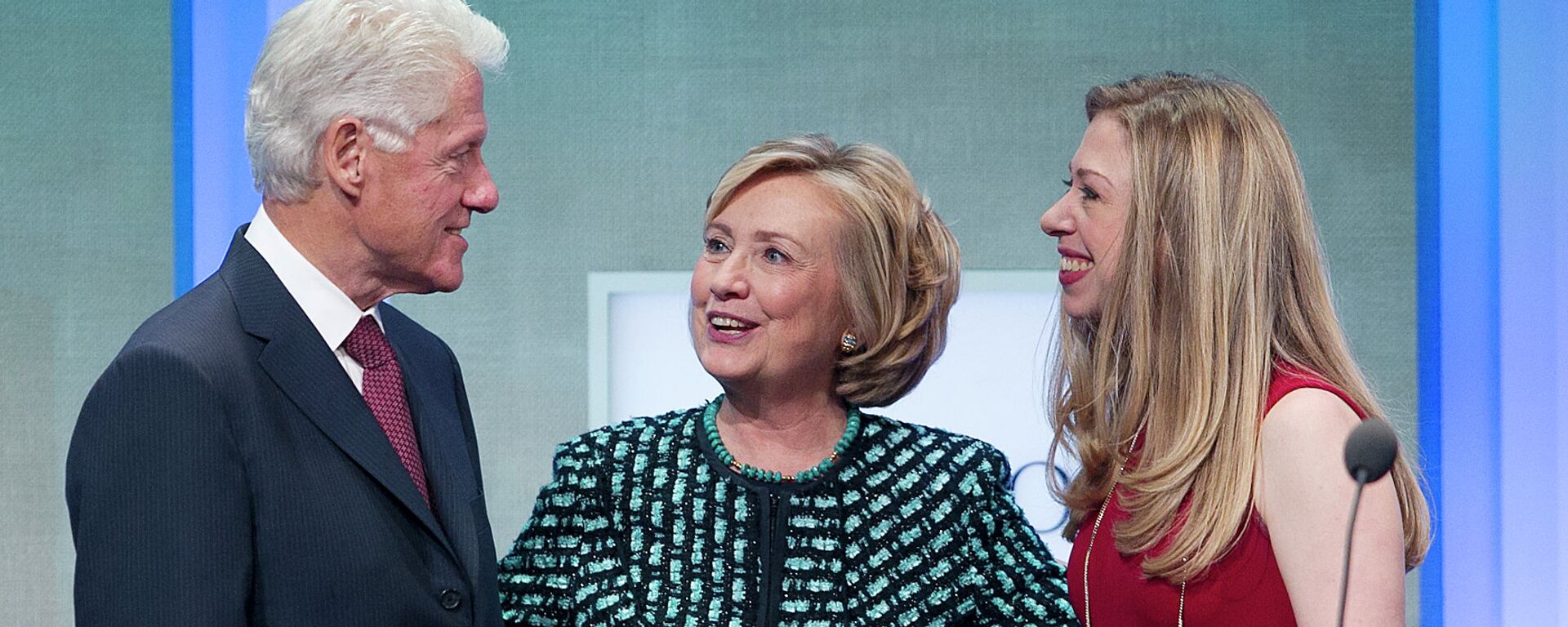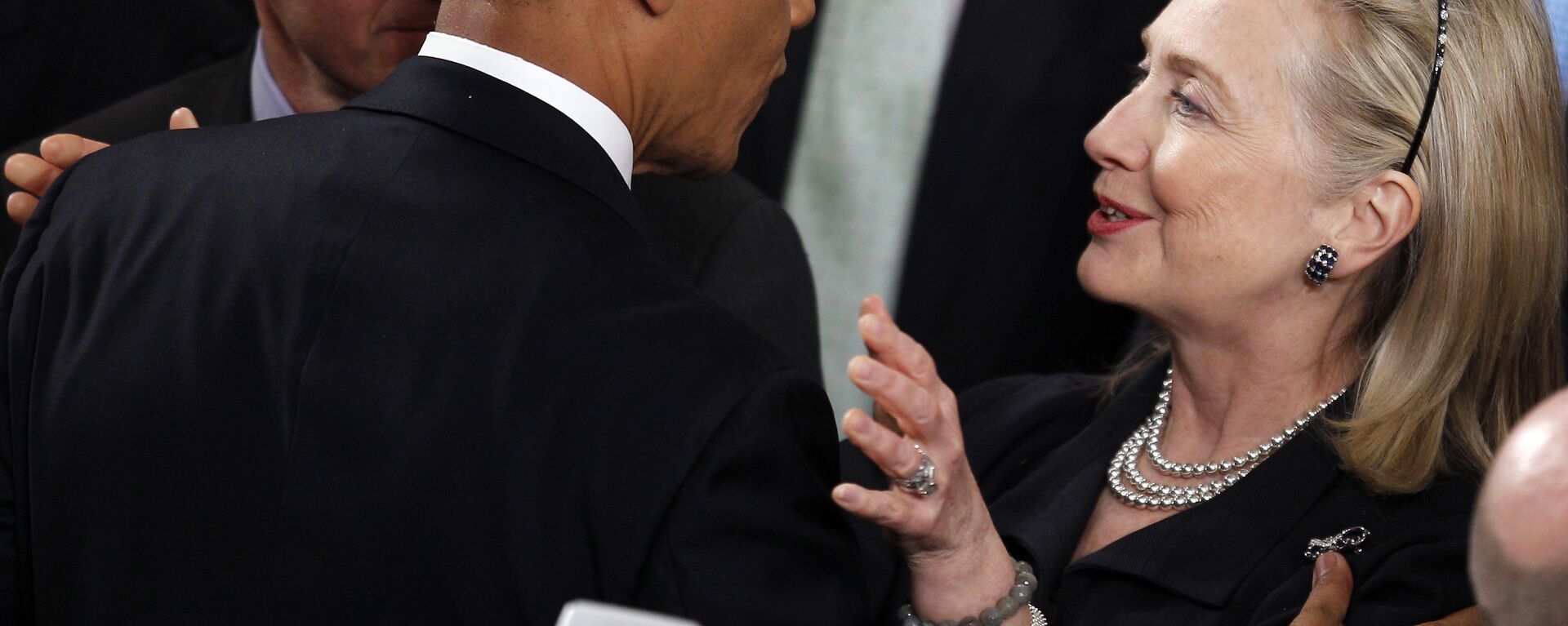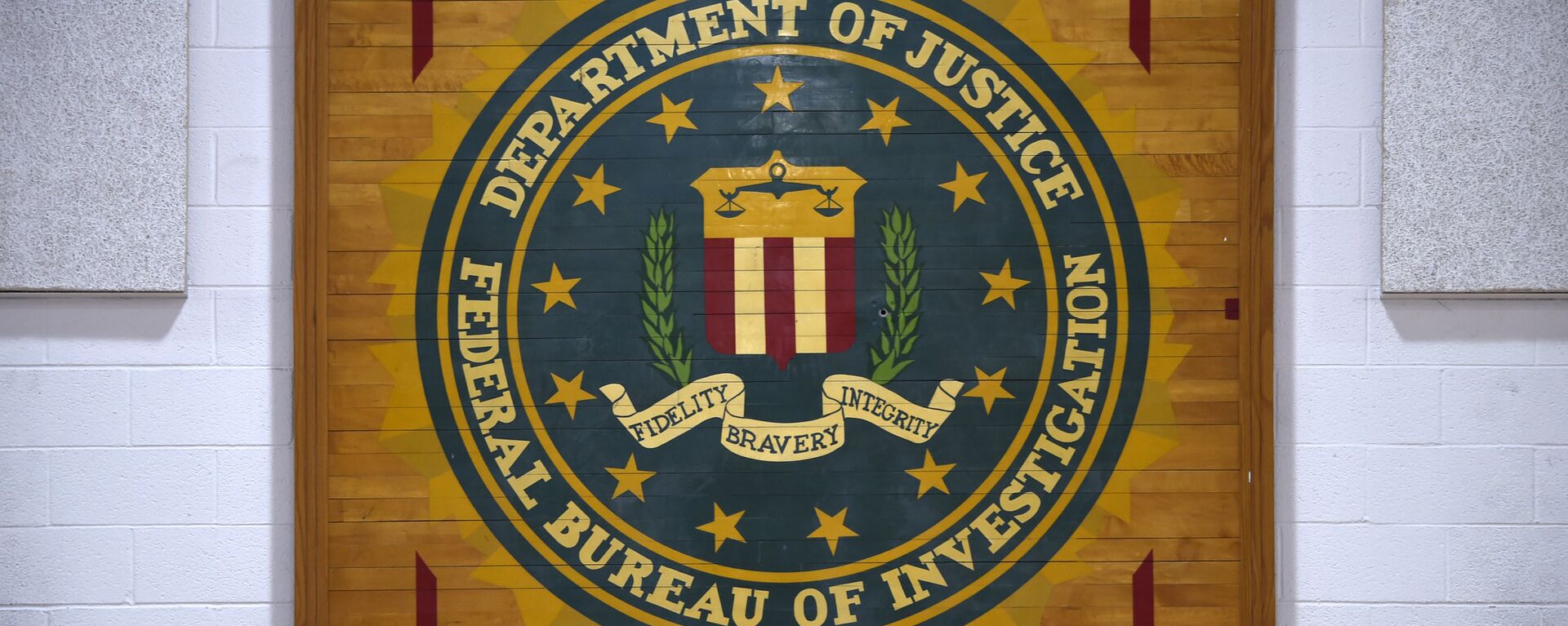Hillary, Beware: Clinton Foundation Whistleblowers Reportedly Interviewed by Special Counsel Durham
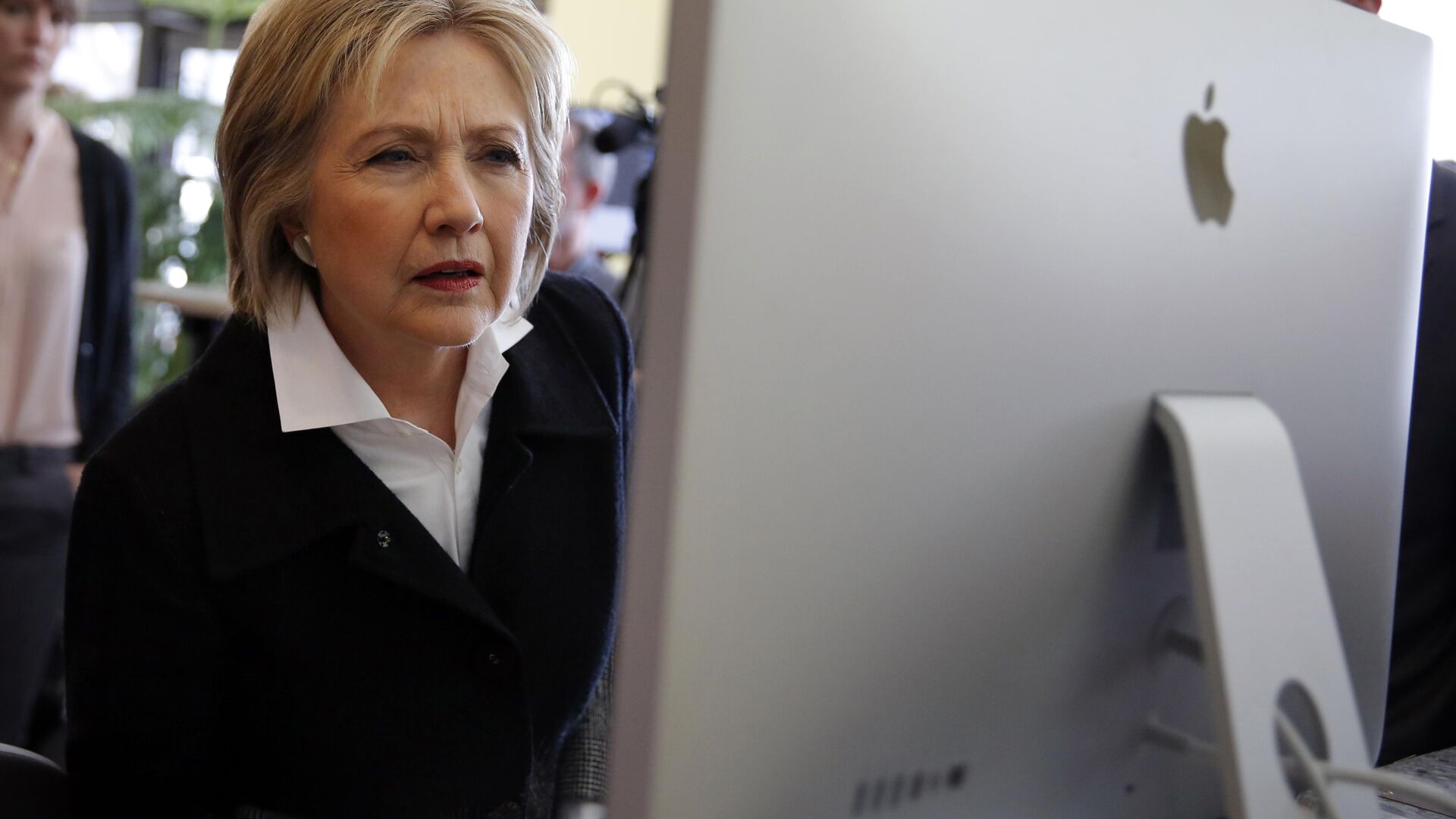
© REUTERS / Carlos Barria
Subscribe
Clinton Foundation Whistleblowers Lawrence W. Doyle and John F. Moynihan on 26 October revealed that they were interviewed by Special Counsel John Durham, who has been investigating the origins and handling of the Trump-Russia probe since 2019. Still, they provided no details about the reported conversation. What could they have discussed?
Doyle and Moynihan, independent expert forensic investigators, testified before the House Oversight and Government Reform Committee in December 2018, alleging that the Clinton Foundation owes the US government between $400 million and $2.5 billion in taxes. According to them, the charity did not operate as a tax-exempt 501(c)(3) organisation but acted as nothing short of a foreign agent. The two Jesuit College alumni said that they had collected approximately 100 exhibits in excess of 6,000 pages to back their claims.
The two forensic investigators filed whistleblower submissions with the IRS over the charity's suspected misdeeds as early as in August 2017. After their request was finally denied by the IRS in February 2019, they filed a lawsuit with the US Tax Court.
Following question was posed on separate thread: "Have you seen anything that would suggest that Durham has interviewed the Clinton Foundation whistleblowers?"
— Financial Bounty Hunters USA (@LWDoyleUSA) October 26, 2021
W/o going into details, answer is YES . . !!
Clinton Foundation Whistleblowers
Doyle, Moynihan v IRS (US Tax Court)
It is not the first time that Special Counsel Durham has been reported allegedly looked into the Clinton Foundation. On 24 September, The New York Times broke the story that Durham sought information about the FBI's Clinton Foundation inquiry within the framework of his "investigation into investigators."
At that time, NYT suggested that the US attorney's focus on the Clintons raises questions about the scope of the prosecutor's review: "The approach is highly unusual, according to people briefed on the investigation," the media outlet remarked.
In September, the special counsel indicted Michael Sussmann, a Perkins Coie lawyer with ties to the Hillary Clinton Presidential Campaign over an apparently false statement made to the FBI. According to the indictment, the lawyer provided the agency with research about "secret communications" between the Trump Organisation and Russia's Alfa Bank, which was later debunked as not holding water. Sussmann misled the FBI by stating that he had not been acting on behalf of any client, while in reality he was working for and billing the Hillary Clinton campaign.
The unusual length of Durham's indictment and accompanying documents prompted journalists and legal observers to suggest that the special counsel is building a far broader case. Some legal experts even went as far as to allege that the special counsel is "circling" current national security adviser and former Hillary Clinton aide Jake Sullivan.
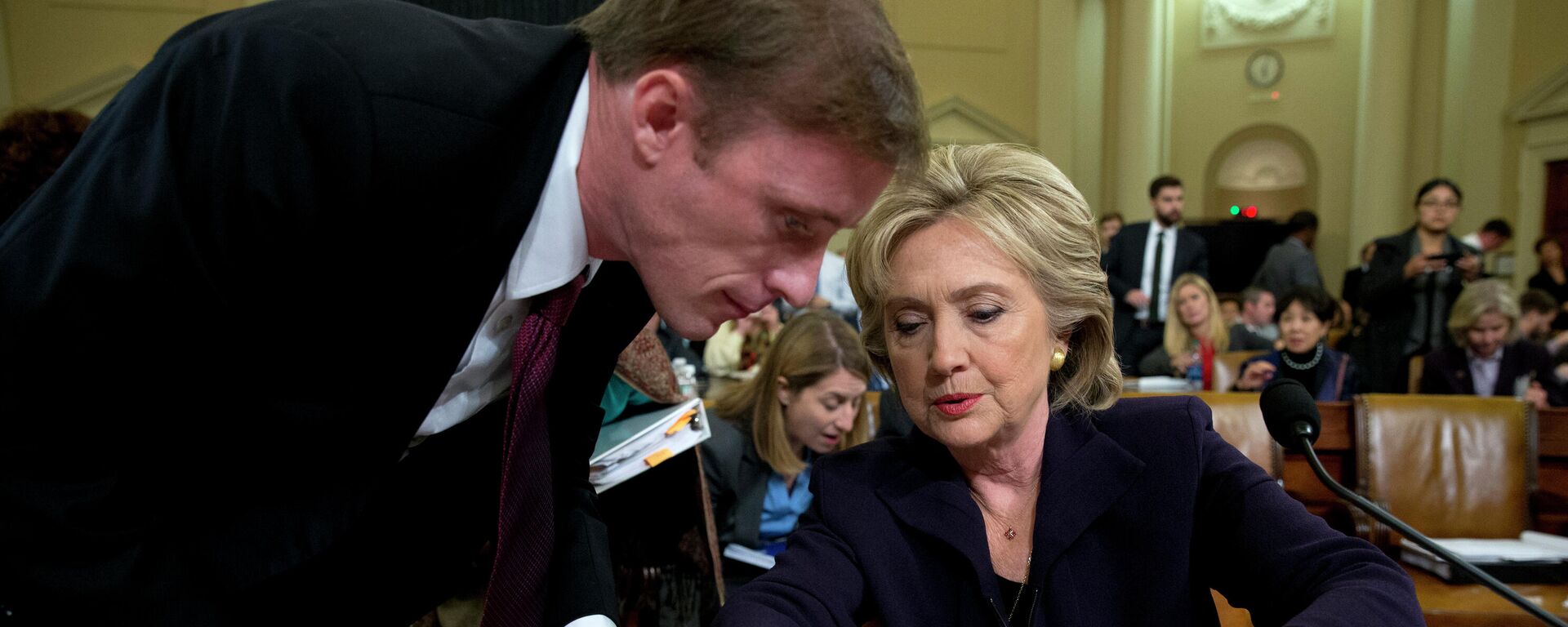
14 October 2021, 17:52 GMT
Trump-Russia 'Collusion' & Hillary's Emailgate
Durham's apparent interest in the Clinton Foundation is adding to the assumption that he is digging deeper than it was previously imagined, believes Wall Street analyst and investigative journalist Charles Ortel.
Assuming that Durham was interviewing Doyle and Moynihan on the Clinton Foundation case, it appears unlikely that it was limited to the ongoing Trump-Alfa Bank episode, believes Ortel. Apparently, the special counsel is looking as to why Hillary Clinton and her team were vigorously peddling the Trump-Russia "collusion" hoax, according to him.
In the final months of Donald Trump presidency, Director of National Intelligence (DNI) John Ratcliffe provided Durham with at least a thousand documents and released a handwritten memo by then-CIA chief John Brennan which cited intercepted Russian intelligence. According to this information, Hillary Clinton was advised by her team members to vilify Donald Trump by linking him to the Kremlin in order to distract public opinion from her emailgate scandal.
From Emailgate to Clinton Foundation's Alleged Fraud
However, it's not just the emailgate scandal that was eating away at Hillary Clinton and her entourage at the time, but an alleged "pay-to-play" scheme, involving both domestic and foreign players, which supposedly prompted the then-secretary of state to use a private email server to keep the whole thing secret, the analyst presumes.
The Clinton Foundation supposedly played a central part in this scheme, according to Ortel, who has been conducting a private investigation into the Clintons' charities over the past several years. He suggests that the foundation was used for influence trading, adding that apparently therefore the Clinton Foundation's donations have dropped dramatically since the Clintons lost their political power.
"At this stage serious questions about the legal status, solicitation practices and financial reports of 'The Clinton Foundation' (all names used and all affiliates) have been publicly raised for decades," Ortel says. "Though the public records demonstrate, beyond any reasonable doubt, that The William J. Clinton Presidential Foundation was not lawfully organised on 23 October 1997 or lawfully operated ever since, the FBI, Department of Justice and state and foreign regulators have given these charity frauds passes for nearly 25 years."
What's more, the same individuals who went after Donald Trump starting from 2016 – Robert Mueller, James Comey and Rod Rosenstein – had turned a blind eye to the Clinton Foundation's alleged fraud for years, according to the investigative journalist.
Ortel believes that Doyle has summarised the type of information he and Moynihan have collected that should assist Durham and his team. According to him, the two Jesuit College alumni understand the intricacies of unprosecuted charity crimes intimately that so many in both parties likely wish to continue covering up.
"At this moment, America is trapped in partisan rancor believing we can always finance record government deficits and escalating debts because our currency remains less risky than others," Ortel says. "One way to reframe the debate and to unify the nation is to enforce strict charity laws particularly as these apply to large, ineffectively-managed charities which claim the right to pursue foreign activities in the guise of philanthropy."

